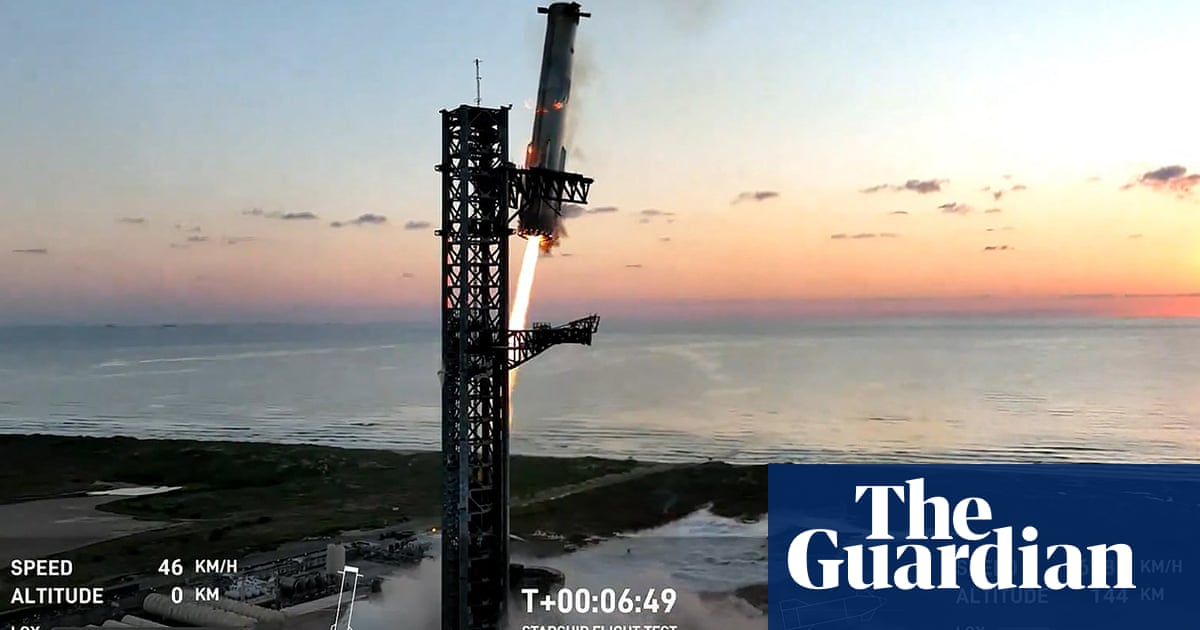Elon Musk’s SpaceX achieved a significant milestone on Sunday by catching the massive booster stage from its Starship rocket in a pair of robotic arms as it fell back to the company’s launchpad in southern Texas.
The historic feat, which drew praise from astronauts and space experts, topped a successful fifth test flight for the uncrewed Starship, which blasted off from the Boca Chica starbase at 7.25am local time (1325 BST) on Sunday.
As the rocket’s 71-metre (233ft) Super Heavy booster separated 40 miles (65km) above the Earth, the upper stage pushed on to an altitude of nearly 90 miles, looping around the planet at 17,000 mph before splashing down in the Indian Ocean as planned.



How does that relate to what I said? Starship has not launched any payloads yet. Your original comment said this rocket should be banned because it depletes ozone. It doesn’t. You should say we should outlaw SRBs, soot trails, and aluminum satellite reentry, not ban starship or rockets in general.
Why would I say to only outlaw those specific items? We need to stop launching all this commercial garbage into space without knowing all of the harm it causes. I don’t think we should wait until it’s too late to see how harmful it has become.
Relax with the commercial launches. Its hurting all of us.
Because we have reason to believe those things might be harmful. We do need much more research to see how harmful they are to ozone, since the one paper’s conclusion was that tens of thousands of satellites re-entering each year may have a percent or two effect on ozone. But I don’t see why we would ban rockets that we have no reason to believe hurt ozone.
It’s definitely not 1 or 2 percent. You are downplaying the issue by a ridiculous margin.
How many percent is it?
Like I said previously, who really knows until the studies have been done. There hasn’t been time to study the effects. Should we wait until there are tens of thousands of satellites in the sky? Or hold off for now, have some patience, and wait for our scientists to catch the data? Whats the big hurry?
I don’t have access to dig though it right now, but I thought the NASA paper showed couple percent increase in ozone deterioration.